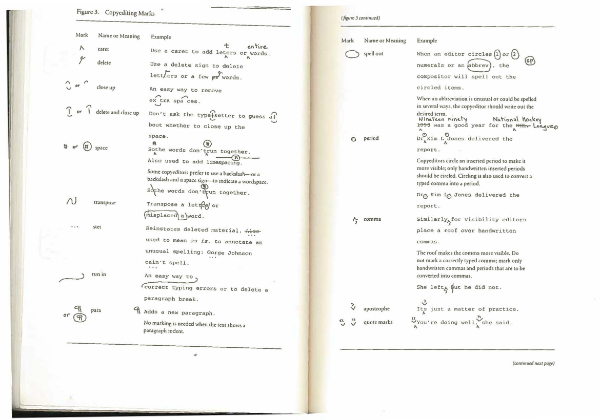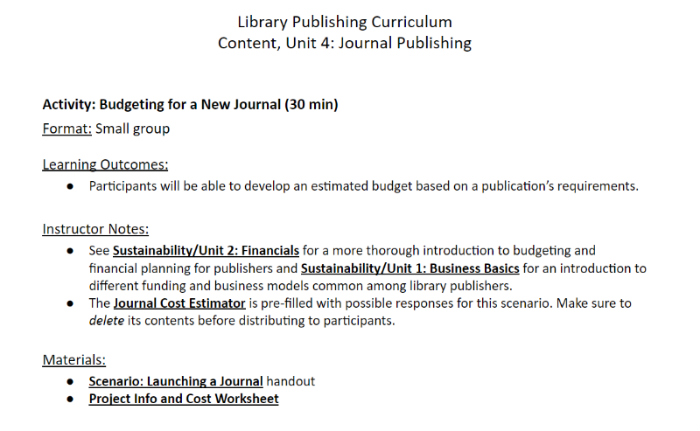The Fellows Journal is a forum for the current Library Publishing Coalition fellows to share their experiences and raise topics for discussion within the community. Learn more about the Fellowship Program.
*********
Quite early in my career, as an editorial assistant in my first real publishing job, I was sent to a semester-long copyediting course, where I learned about the different levels of copyediting, the importance of style guides, and how to mark up manuscript in hard copy.

The rest of publishing, I was expected to learn on the job. I learned this at a professional development event, where editorial assistants complained that, with the changes brought about by technology, we were being delegated to administrative assistant roles without growth potential because we were no longer performing tasks that gave us insight into the process (like taking down dictation for their editors, typing up letters, or transferring editorial marks from one hard copy to another). We want to be copied on emails! was the rallying cry.
That publishing is still very much an apprenticeship field has not changed, as Cheryl Ball so eloquently argued in her email to the LPC list-serv on the value of experience, and how volunteering can be a stepping stone to one’s career. [1] However, this isn’t necessarily clear to people managing volunteers or early career professionals, who might not be aware of their roles as mentors and mentees. There are also those in the library publishing community who are brand new to publishing or aspects of publishing. I include myself in this group – while I worked on monographs, casebooks, workbooks, and textbook programs in my previous career, I had never been responsible for a journal until I entered librarianship. As a scholarly communication resident at the University of Massachusetts Amherst, I suddenly found myself responsible for a journals list. (Thank you Marilyn for trusting me!)
This is why I was glad to be given the opportunity to engage with the new Library Publishing Curriculum, as an instructor for the Content Module along with Joshua Neds-Fox. We’ve now taught from the curriculum in two formats: as an all-day in-person workshop and as a synchronous online workshop in 1.5 hour weekly increments over 4 weeks.
Teaching from the Library Publishing Curriculum has been a great experience because it’s forced me to actually go through the content and engage with it more deeply. I’ve also discovered that it’s really easy to teach from the materials provided, which is an incredible resource. Every lesson has a bibliography, instructor guide, narrative, slides, and supplements (that are actually just lesson handouts). I highly recommend that people start with the narratives, which are generally just a few pages. The instructor guides are written so thoroughly that they function as scripts, which accompany the slides and each lesson’s activities. Lesson activities are sprinkled throughout, and are engaging and thoughtfully written to spark conversation in group settings.

In short, it’s easy to teach from and therefore it’s easy to teach yourself from the Curriculum. The only criticism that I have is that there’s actually an overabundance of material to read and view, so I advise that the readings and videos be treated as additional material if the slides, narrative, and instructor guide are not enough. In fact, Joshua and I were not able to cover the entire Content Module in the time we had; instead, we selected from a few units. Each lesson takes approximately 1-2 hours to go through in a classroom setting, depending on whether there is group discussion and/or pre-reading/homework.
The authors and editors of the Library Publishing Curriculum should be congratulated for their work on such an organized and helpful resource. And kudos to the LPC for making it openly available to everyone!
[1] Ball, C. (2019, Jan 21). Re: [lpc-l] Member discussion request: Student labor norms in publishing programs (Electronic mailing list message).
